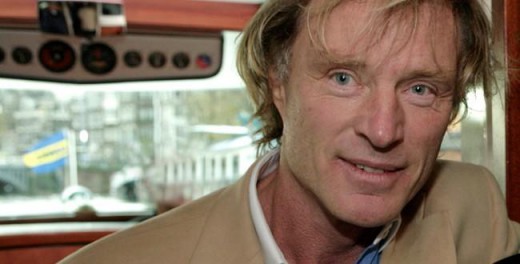By Jacob Gelt Dekker, opinion columnist for Curaçao Chronicle

Greek crisis for dummies, answers to the 7 basic questions.
1. What is the problem in Greece?
The State of Greece consumed more that it collected in taxes and other income. Its deficit was financed with State bonds and, over the years, therewith the State of Greece accumulated staggering debts.
2. How can the debt problem of the State be solved?
The old debt can be paid back over a long period of time, out of new income of the State or be discounted or forgiven. New income is generated out of: A/ Higher VAT- tax, mostly from tourism. Note: Greece receives 22 million tourists per year. B/ Tax on shipping activities, international and local. Presently, most of it is tax-free. C/ Tax on new ventures such as, new gas- and oil fields; distribution ports for Japanese and Chinese mass market products such as cars etc. D/ Sale of assets of the State, such as; hotels, railroad companies, airports, harbors, port facilities, toll roads and bridges etc. An expected income of Euro 50 billion from those sales is estimated. E/ Reorganizing property registration, and taxing hundred of thousands of unregistered structures and buildings (Cadaster). For instance, in Athens, thousand of villas have swimming pools, but fewer than ten are registered. F/ Taxing tax-free enclaves in Greece, such a religious territories of the Byzantine Church (Athos, Pilatos etc.). Many of these “ holy” places function as tax havens of the shadow economy. G/ Taxing offshore companies, bank and dubious structures on some of the islands.
3. How can new debt be avoided?
The State has to reduce spending. Suggested methods are: A/ Pension old age illegibility increased from 48 up to 67 years, like in the rest of Europe. B/ Eliminating extensive fraudulent recipients of State pensions, like those who have long died and whose family are still collection pensions. Thousands of non-existent recipients of over 100 year-old were discovered. C/ Reorganizing State employees and weeding out, at least, 10,000 non-existing, phantoms workers. Many workers collected double-income by registering under two family names.
4. What are the new international loans for?
None of the above mentioned measures would have immediate effect, since execution will take some time. The new loans are to pay for present obligations and to bridge the implementation and development period. For instance, building the oil and gas pipeline from Crete and Cyprus will cost about Euro 3-5 billion and takes a few years.
5. Why are so many people angry about this deal?
Many who received monies and tax brakes from the State fraudulently will be cut out. This is a new reality for shipping tycoons, as well as welfare fraudsters. Communists and socialists are upset since their ideology is big State control of production and consumption, whereas under the new austerity, State control will be reduced and minimalized dramatically. Many communists are eager to sabotage all efforts of reduction of the State. Communists are in principle against an open and free market. Greece has Europe’s oldest communist party.
6. What was all the Drachma/ Grexit talk about?
When countries in Europe still had their own currency, large government debt was often solved by enormous inflation and debasing (devaluation) of the currency; famous examples were Italy and Spain. This would not work for Greece, since Greece has very little home production and has to import more than 70% of all its daily consumption, and those imports would still have be paid in Euros. The anti-Euro lobby within the EU used and abused the Greek situation for political propaganda.
7. Will the new plan work?
That will depend on implementation. The EU has to send as many inspectors and experts as possible to force implementation of the agreed schedule. We already have the experience that if Greece is left to its own, it will not have the disciple to execute the agreement. The Netherlands will send Cadaster- and VAT- experts. Many Dutch and German companies are interested in building the oil pipeline and the new cargo train tracks. Chinese and Japanese companies are eager to set up European distribution centers in Piraeus. Expansion of tourism can count on participants from all major global developers. It all goes well, Greece has a very bright future.
Bron: CuracaoChronicle


And most importantly, instruct the Netherlands to cancel the special tax treaty through which which Greek companies, established overhere
in so called letter box entities. By allowing this the Greek entities avoid paying taxes in their own country. Good show mr. Dijsselbloem !
N.b. Most of the companies are established through the Curacao based offshore organization CITCO.